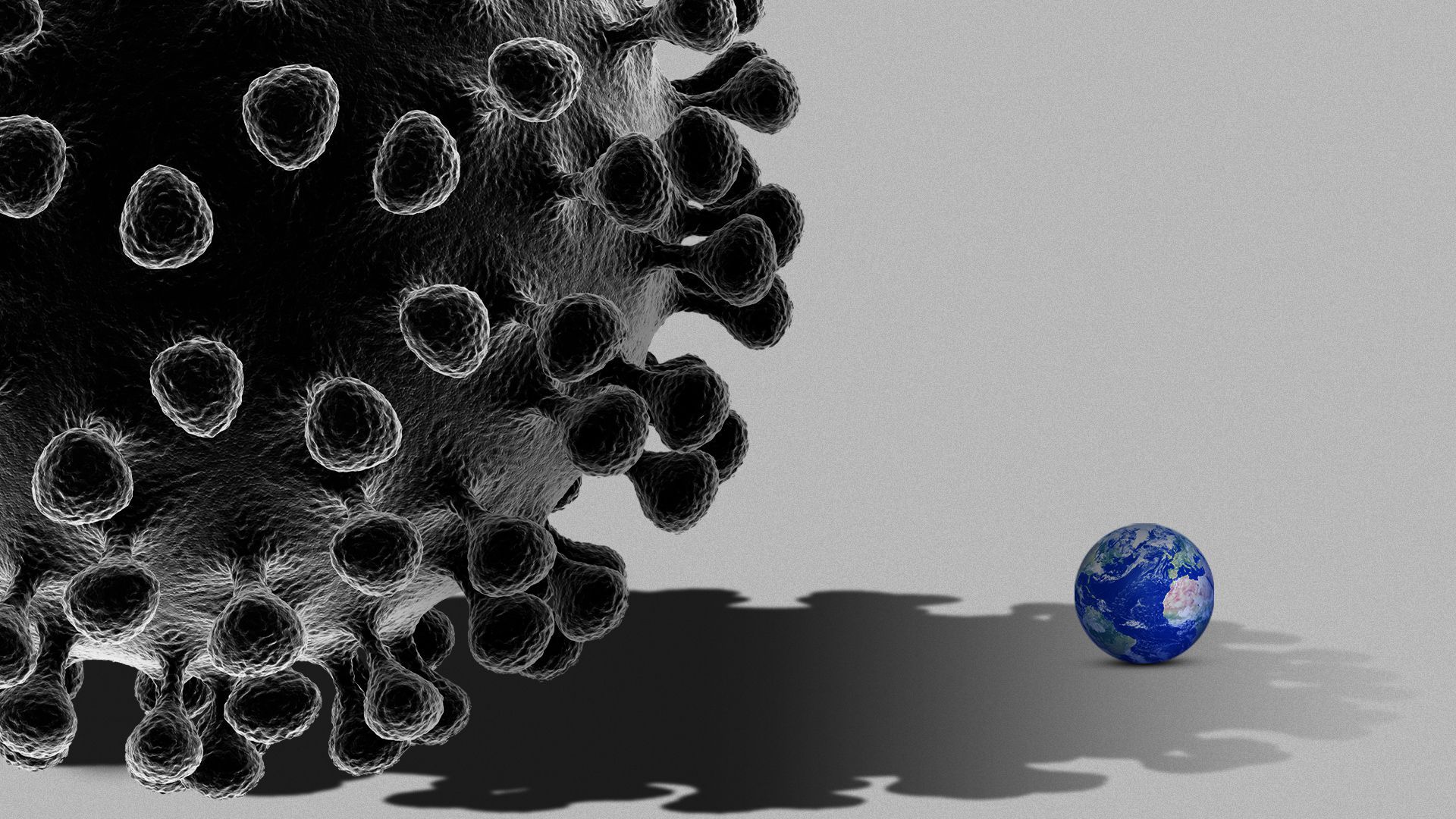
It's deflating, but it would it would derelict to ignore: The hope of anything approximating normal in the coming months — and probably well beyond — is gone.
Why it matters: It's great and normal to cheer for a miracle cure or sudden coronavirus retreat. But the experts who study the virus closest seem unanimous in their verdict that our health, economic and social pain will persist for many months to come.
It’s time to recalibrate expectations based on this stark reality:
- Bill Gates warned in a blog post this week: "[I]t is impossible to overstate the pain that people are feeling now and will continue to feel for years to come."
- Gates said full stadiums and big concerts, both of which will be signs of true normal, "probably will not make the cut for a long time."
- Anthony Fauci sketched for Snapchat a best-case vision of stadiums without spectators, and whole teams quarantined in hotels for the season, undergoing frequent testing.
- Fauci is among the experts who keep telling us that even if the virus recedes in the coming weeks, it won't be gone: "[W]e will have coronavirus in the fall."
- Robert Redfield, director of the Centers for Disease Control, told the WashPost he imagines a one-two punch this winter of "the flu epidemic and the coronavirus epidemic at the same time."
- Every big business and school in America is privately planning for the possibility of working and learning at home this fall. Schools have no choice but to contemplate the risks of kids picking up the virus in school, and infecting parents and grandparents at home. CEOs are having the same conversations about the workplace.
The true U.S. unemployment rate is estimated at 20% to 45% — possibly exceeding the Great Depression peak of 25% in 1933.
- S&P now says the jobs recovery will take until next year, and we likely won't get back to pre-coronavirus levels for a couple of years.
We cheer the idea of restaurants reopening — but, according to Bill Gates and California Gov. Gavin Newsom, likely with half as many tables.
- Ask yourself this: How many restaurants, which already operate on thin margins, can survive with half the business?
- "The whole business model, the whole point of a restaurant, is to get as many people as possible into the space on a given night," Edouardo Jordan, owner JuneBaby and other restaurants in Seattle, told the N.Y. Times.
Airlines, if and when they return to the skies, may have to leave middle seats open.
- Ask yourself this: Would you travel if the threat of the virus remains?
- If so, ask yourself: Can these airlines, already flirting with bankruptcies, survive with 33% fewer seats to sell?
The big picture: One of the most sobering reads of the past week was a synthesis by the N.Y. Times' Donald McNeil of his gloomy conversations with 20+ experts about the next year or two:
- "[T]he scenario that Mr. Trump has been unrolling at his daily press briefings — that the lockdowns will end soon, that a protective pill is almost at hand, that football stadiums and restaurants will soon be full — is a fantasy, most experts said."
- 🥊 "All the experts familiar with vaccine production agreed that even [Fauci's timeline of at least a year to 18 months] was optimistic."
- National Geographic notes: "The mumps vaccine—considered the fastest ever approved—took four years to go from collecting viral samples to licensing a drug in 1967. "
Plus there's zero evidence of heat killing the virus.
- High hopes for an experimental treatment by Gilead Sciences were set back by inconclusive results.
- And the World Health Organization said today there is "no evidence” that people who have recovered from COVID-19 and have antibodies are protected from a second infection, per Reuters.
What’s next: Based on the science and scientists, it seems wise to plan for the surreal and painful past two months to last most if not all of 2020.
from Hacker News https://ift.tt/2S93Mcf
No comments:
Post a Comment
Note: Only a member of this blog may post a comment.